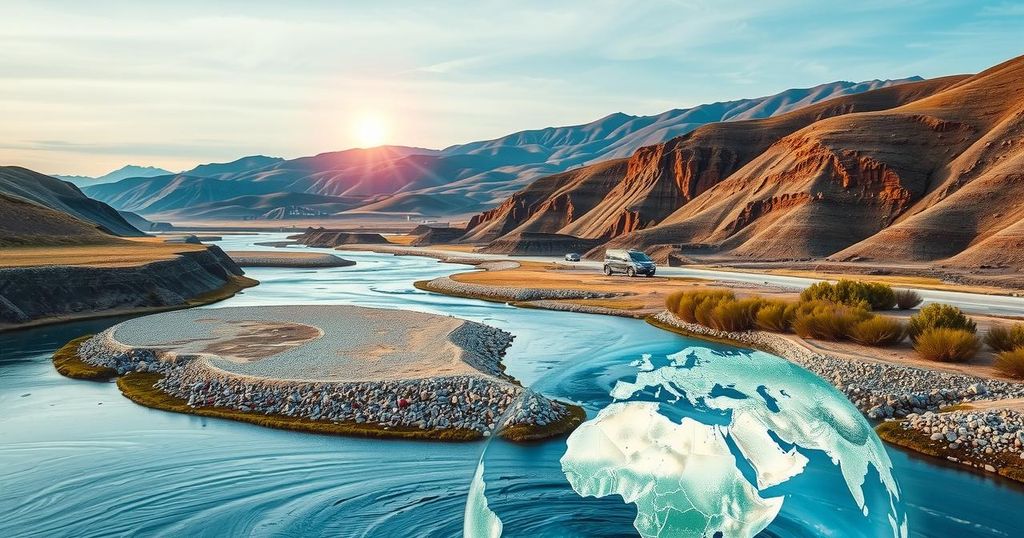European Parliament Urges Suspension of Rwanda Minerals Agreement Amid DRC Conflict

The European Parliament has urged the EU to suspend its minerals agreement with Rwanda amid escalating violence from M23 rebels in the DRC. While MEPs condemned the situation and called for the halt of financial aid to Rwanda, the European Commission maintains that the agreement will continue, citing potential human rights implications. The Parliament refers to the sourced minerals from conflict areas as “bloodstained” and underscores the humanitarian crisis in Goma.
The European Parliament has called on the European Commission to reconsider and suspend its critical minerals agreement with Rwanda due to escalating violence in North Kivu, Democratic Republic of Congo (DRC). The ongoing conflict, primarily instigated by M23 rebels allegedly backed by Rwandan forces, raises concerns regarding the agreement’s integrity. EU Commissioner for the Mediterranean, Dubravka Šuica, stated that halting the purchase of metals and rare earths may undermine human rights obligations of the EU.
In a resolution passed with overwhelming support, MEPs condemned the occupation of Goma and other eastern DRC territories by M23 rebels and Rwandan troops, pointing out the seriousness of reported war crimes, including indiscriminate attacks and unlawful killings. The casualty figures in Goma have surpassed 3,000, illustrating the humanitarian crisis.
Calls for halting direct financial aid to Rwanda, particularly military assistance, were emphasized by MEPs until Rwanda cuts ties with M23. The Parliament specifically demands the immediate suspension of the EU-Rwanda Memorandum of Understanding on Sustainable Commodity Value Chains, which was established only a year prior. This suspension is contingent upon Rwanda ending all interference in the DRC.
The minerals sourced from M23-controlled areas are described as “bloodstained” and raise ethical concerns amid the global competition for resources crucial for ecological transitions. The EU’s objective is to ensure a sustainable supply of important raw materials while simultaneously reducing reliance on China. Notably, Rwanda has been earmarked for over €900 million under the Global Gateway strategy to enhance its mining infrastructure.
The agreement with Kigali has been contentious since its inception, as UN documents highlighted the illegal mineral trade in the conflict-affected regions. President Félix Tshisekedi of the DRC criticized the agreement between Brussels and Kigali, labeling it a “provocation in very bad taste.” The region where Rwandan-backed rebels are active coincides with rich mineral deposits essential for critical industries.
Despite the intensified situation, the European Commission has opted for a pragmatic approach, choosing not to suspend the memorandum. Commissioner Šuica reiterated the importance of maintaining open borders for humanitarian efforts while ensuring the safety and legal protection of civilians. Furthermore, the Commission is expediting its humanitarian budget for the DRC in light of the evolving crisis, while reaffirming support for responsible mineral production by Rwanda.
The European Parliament’s call for suspending the minerals agreement with Rwanda amidst ongoing DRC tensions highlights significant ethical and humanitarian concerns tied to mineral sourcing. Despite overwhelming support for the resolution, the European Commission maintains a pragmatic stance, emphasizing continued support for responsible mineral trade while advocating for humanitarian protection in the conflict-ridden region. As violence continues, the debate on the intersection of international obligations and resource management remains crucial.
Original Source: www.eunews.it








